March is Superman month here at the m0vie blog, what with the release of the animated adaptation of Grant Morrison’s superb All-Star Superman. We’ll be reviewing a Superman-related book/story arc every Wednesday this month, so check on back – and we might have a surprise or two along the way. I figured that, today, I’d take a look at Superman-related movies.
You know, Quentin Tarantino once boasted that he had a 20-page review of Superman Returns that the director had been drafting for some years now. This review is going to be long, but it’s – hopefully – not going to be that long. The film has divided fans, movie-goers and film critics since its initial release, killed an attempt to relaunch the “Superman” brand name in the new millennium, made a shedload of money (although not as much as Warner Brothers would have liked). It’s a movie that deserves a large amount of discussion and debate, and it sure has generated it. I’m not a staunch supporter of the film, but I don’t hate it, either. Superman as a character has endured far greater humiliation. Still, it’s a bit of a disappointing continuation to the on-going Superman mythology.
From the opening frames, as the movie subtly incorporates notes from John Williams’ iconic Superman theme into the Warner Brothers logo, you get the sense that this is a movie crafted with the utmost respect and reverence for the original films. Richard Donner’s name is triumphantly announced as a producer on the film, and one can sense just how closely director Bryan Singer hopes to mirror that original superhero film. Donner’s Superman kick-started the superhero genre, and it’s rightfully iconic. When a lot of people think of the Man of Tomorrow, it’s Christopher Reeves they picture in their mind’s eye and that score that they hum to themselves.
The movie is crafted with highest level of professional courtesy to what came before. The movie throws several conscious acknowledgements to the first film and (notable) to the Richard Donner cut of Superman II, while ignoring the rather ignominious Superman III and Superman IV: The Quest for Peace. However, this respect is suffocating. There’s a sense that the audience is watching a documentary on Donner’s original films, a faithful reproduction. It treats the original film as gospel – it’s like watching the most powerful hero on the planet moving through a dead museum, with the relics of a golden age on display – to be looked at, rather than played with.
However, this ignores the simple fact that Donner’s material is consciously pulpy and a little bit cheesy. I don’t mean that in a bad way, but Donner’s film was never especially stuffy when it came to the source material – certainly nowhere near as obsessive as Singer’s adaptation is when it comes to the earlier films. There was a cheeky, almost subversive charm to Donner’s adaptation of the great American myth, one which is lost in translation. Everyone remember the scene where Lois and Clark are mugged in the original film? Or where Clark is looking for a place to change and doesn’t pick a phone booth? There is nothing like this here.
It doesn’t help that the movie essentially plays as a variation on the themes we saw in that very first movie all those years ago. “The universe is a big place,” Martha Kent remarks to her son at one point, and it leads us to wonder: why are we getting the same stuff again? Superman has made five big-budget pictures, but his selection of foes has been pretty much confined to Lex Luthor, stand-ins for Lex Luthor, and General Zod. So rather than giving us anything new, the movie offers us the same basic plot, again and again. I’m fairly sure you could make the point that Singer is saying something about the way that out mythologies continually reinvent themselves through a series of archetypes, but I’m not buying it.
Here we have a direct lift of several scenes and plot elements from the first film, all those years ago – to the point where one sense that this is almost a remake. We get an introduction to Superman, as he saved Lois from an airplane. Hell, he even uses the same old “it’s still the safest way to travel” line from that film – it would seem clever if the whole scenario hadn’t been given a paint job and a special effects upgrade and then simply copied and pasted. The movie revolves, again, around a Lex Luthor real estate scam – and, again, dialogue references (his father said “get out”, we get it) would be smart if the whole scenario hadn’t been lifted as well.
Even Richard Donner’s recent comic book run on Action Comics featuring the character didn’t stick so faithfully to his own work, rather elaborating and developing on various ideas rather than recycling them wholesale. By the way, that relatively short run on the character is highly recommended for any fans of the original films – it reintroduced the classic General Zod character into the comic books.
There’s also the simple fact that a lot of this is redundant. The movie opens with some text explaining to us who Superman is – ignoring the fact that the character’s origin is one of the great myths of popular culture. Similarly, we get some flashbacks to Superman’s childhood, which are completely pointless. They seem to exist solely to make us remember the similar scenes from the first film, but they lack any hint of emotional growth and development for the character. There’s nothing in these scenes which tell us “why” he’s Superman – at least Donner’s version of the tale used the death of Clark’s father as an emotion springboard. Here there’s nothing, the scenes just exist to remind us of what came before – which is unforgivable in a two-and-a-half-hour film.
Anyway, before it sounds like I’m being too harsh, I’d like to admit that there are elements of the film that I like. And, to be honest, a lot of them can traced back to Donner’s influence or beyond. I still get the giddy thrill when I see that opening sequence. It’s staged pretty much the same way as the one for the first two films, but it looks brilliant through the use of modern technology. It’s the kind of thing you’d imagine Donner would do himself these days, rather than consciously emulating an earlier film.
There are other moments of nostalgia and references which work quite well of themselves. “These are iconic,” the grizzled editor of the Daily Planet, Perry White, remarks on seeing some of the shots of Superman lifting a car over is head. It is iconic, it’s a stylised and updated iteration of the classic Action Comics #1 cover. However, the difference between references like these and the ones that clog up the narrative is simple: these moments work well outside of the nostalgic context. You could see Superman lift the car, and thing it’s cool and an organic part of the movie, without feeling like the film was aspiring to be something else. You could be impressed by those opening credits, without thinking of how many times you’ve seen them before.
Singer’s direction is, as ever, top notch and the film’s production design stands out. It’s grounded, and yet strangely stylised. It combines the sort of “fifties verisimiltude” that Donner aspired to, with hints of Art Deco which call to mind Burton’s version of Batman. I would make the observation that the film is a little dark (visually) for such a bright character, but it does generally look incredibly beautiful and well put together.
I also like the way that Singer continues and develops Donner’s idea of Superman as a religious metaphor. There’s a hint of divinity in the character, one which suits his origin perfectly. Here, we’re shown Superman watching over us from the sky, listening to our prayers and our cries for help. In response to Lois’ claim “the world doesn’t need a saviour”, he remarks, “everyday I hear people crying for one.”
Towards the end of the film, he is impaled by a spear in the side, like Christ was – and am I the only one who felt that scene was just a little homo-erotic (especially considering Lex’s some earlier comments about being worth “less than a carton” in prison)? Later, Superman falls back to Earth like he’s been crucified. It’s powerful imagery, and Singer handles it well. It never really overwhelms his film, but it’s there if you want to see it. However, this messiah metaphor does make some of his other choices a little stranger.
There are other clever ideas on display here. I like the way that, even in 2005, Singer made a conscious effort to pepper the film with social media. Photos of Superman are captures on cellular phones. Lex’s goons are documenting their antics on video camera. News footage rolls in instantaneously from across the globe. It’s clear we’re all connected – like no time in history, we can hear each other, even from the opposite side of the planet. If Superman can be everywhere at once and can hear everything, we’re now as close to being Superman as we could ever be. There’s that optimistic note in there, the aspiration that mankind can be super. “They only lack the light to show the way,” as Jor-El narrates.
The movie opens with Superman returning to Earth after an unspecified absence. The explanation for his disappearance grates on me, but we’ll come to that in a moment. Anyway, Superman was away. While he was gone, his mother (and evidently many others) “almost gave up hope.” We’re assured that the world was a worse place while Superman was gone – but what does that mean? How does he make the world a better place other than stopping a few bank robberies? When Clark returns to Metropolis, the city is still as stylised and perfect and clean as it was in the Donner films, for example.
If Superman’s absence led to a rise in local crime rates, we see no real indication. As much as I like the design of Singer’s Metropolis, it’s hard to argue that he didn’t miss a core piece of the Superman mythos. Superman’s relationship to Metropolis is not like Batman’s to Gotham. Gotham was a terrible city that took Batman’s parents – it shaped him and formed him. Metropolis did not shape Superman – at least not to the same extent.
Clark Kent grew up on a farm, with those core decent values. That’s who he is – he’s a farm boy who just lives in the city. If Metropolis is perfect, that’s not because it influence Superman and made him that way. Instead, he shaped it. Superman makes Metropolis “the City of Tomorrow.” Various Superman stories (from Kevin Smith’s Superman Lives! to Geoff Johns’ Secret Origin) make the argument that the city was a cesspool before Superman arrived. Surely his disappearance would damage the city? We’re given no indication.
Instead, we’re shown footage of Clark flipping through the television channels and seeing unrest in the Middle East and various global tragedies that have unfolded in his absence. However – how the hell does Superman resolve the crisis in the Middle East or solve world hunger or avert genocide? The most we see him do here is foil a bank robbery. There was, according to Bryan Singer, a scene in the script which would have seen Superman make a more overt statement on his importance in the post-9/11 world:
At one point, I had a scene in the script which I never shot, and I probably was never going to shoot, where Superman would be standing – after flying around rescuing people at night – would be standing at dawn at Ground Zero. Sort of standing there, almost as if to say, ‘If I had been here, this might not be.’
Now, that’s a gutsy scene. It’s a tough scene. I am not sure if I would want that in the movie – as it’s painful when fantasy collides with real life like that. But here’s the thing – if Singer wanted to tackle these sort of issues with the film, he needed to do something like that. Maybe not that exact scene, but something which illustrates that Superman stops more than just “a simple deli robbery.” The Dark Knight gave us the Joker recording gruesome execution videos played back on news channels in a way that recalled Islamic extremists, so I’m sure the film could have found someway to address it.
However, to be frank, when addressing real-world concerns like global conflict and ethnic tensions through Superman, you need to be careful. The character isn’t designed for that sort of thing, and trying to handle it in any way directly always feels more than a little awkward. Superman isn’t a character designed to function in anything resembling “the real world.” He’s a fantasy character. He’s an idea and a metaphor, and metaphors feel clumsy when you juxtapose them against harsh reality.
Take, for example, a scene late in the film, where Luthor and his thugs attack Superman (weakened by… of course, Kryptonite). There’s something really awkward about the sight of three goons (including Kumar) thrashing Superman. I get what Singer is going for – in that (in the real world) good isn’t overwhelmed by aliens or robots or clones or any fantasy villains, but by common human barbarity.Virtue isn’t taken down by a mysterious chemical compound or magic, but by a bunch of banal human characteristics like greed and anger and lust.
However, this somehow misses the fact that Superman’s bad guys are all stand-ins for these problems – Lex is unchecked capitalism, Zod is despotism, Brainiac is the foreigner as invader rather than refugee. Pitting Superman (a fantasy archetype designed to stand for the American immigrant experience and the American Dream) against these villains (and the ideological threats they represent) allows us to play with these ideas. It ruins the metaphor if you’re going to be so direct about it, and it really takes us out of the film and the story.
However, this isn’t the only way that the movie misjudges the Man of Steel. The film’s entire central characterisation of Superman is, to quote Luthor, “WRONG!” Let’s start, at the beginning, with Superman’s decision to leave Earth. “I’m all that’s left,” he remarks to his mother, after he returns from a journey to visit his home planet. Even the decision to leave Earth to search for a planet he knows was destroyed undermines his core character. Superman doesn’t mope. He doesn’t spend his time visiting “graveyards” – he spends it trying to help people. He’s not focused on the alien home he never knew, but on the world he serves every day. In most versions of his story, he didn’t even know he was different from anybody else until he hit puberty.
In my opinion, one of the most powerful emotional moments featuring the character came from Geoff Johns’ retelling of the character’s origin in Secret Origin. Clark has just been told that he comes from another planet, and he’s not human. His first response is not curiosity – it’s shock. To Clark, his human identity is the most important part of his world. Tears welling up, the teenager tells his adoptive parents. “I don’t want to be different,” he confesses. “I want to be Clark Kent.” And then the kicker. “I want to be your son.” That’s who Superman is. He’s Clark Kent. He doesn’t go off on selfish trips across the cosmos in search of something he knows he won’t find and doesn’t really want.
However, this iteration of Superman is incredibly selfish. He sleeps with Lois, hopefully knowing enough about biology to tell she could be pregnant (and having the X-Ray vision to check) and then disappears for about a decade. At one point, he actually follows her home and uses his X-Ray vision to peer into her personal life. That’s not a Superman thing to do. Even the morally compromised Batman had difficulty eavesdropping on other people in The Dark Knight. That’s the kind of abuse of power that one might expect from a deconstruction or a parody of Superman, but certainly not from the real deal. It’s creepy and almost Big-Brother-esque.
In fairness, it’s not the only element of the film which has the faint scent of deconstruction about it. Take, for example, how Superman’s selfish actions allow Lex Luthor (serving a “double life sentence”) to get out of prison after only five years because the justice system isn’t designed to pander to superpowered aliens. “I mean,” Lex explains, “he’s really good at swooping in and catching the bad guys, but he’s not so hot at the little things, like Miranda rights, due process, making your court date.”
Indeed, there’s something cynical about the way the movie treats the media’s obsession with celebrity. When Superman steps in to save lives during a freak disaster, the newsroom is so focused around the man in the tight suit and the cape that everyone overlooks “the real story.” In fact, Lois’ editor explicitly tells her, “The story isn’t the blackout, it’s Superman.” Perhaps it’s a comment on how unquestioning and complacent Superman makes people that nobody investigates the detonation of an EMP within city limits, but it’s also a strong condemnation of our media which is so focused on where Superman went “on vacation” (among other things) that it misses the big picture, the things that matter.
This misses the simple fact that a Superman movie really isn’t the place for deconstruction – especially in contrast with Singer’s other franchise, the X-Men (who work much better as deconstructionist superheroes, as everyone hates them). I’m not saying that it’s impossible to pick apart Superman (Frank Miller does an excellent job in The Dark Knight Returns), but I am saying that it’s impossible to do that with the context of a film like this – which is otherwise staged as a celebration of the hero and his legacy, delighted that he has returned. If the movie wants to portray a cynical Superman (and, to be frank, I’d rather they didn’t) they should be more consistent in their tone.
Here, we’re asked to treat Superman as one of the greatest and most iconic and perfect heroes ever created, but we’re also asked to accept him as perhaps the universe’s greatest deadbeat dad, a party to potential adultery (“Richard’s a good man,” Lois has to remind him of her fiancé, and I wonder what might have happened if she hadn’t) and a super-powered voyeur. In short, our paragon of virtue is even more morally compromised than Christian Bale’s Caped Crusader. And the movie isn’t exactly sure how to handle this, just plodding along as if it were any other superhero film.
And, in fairness, Singer actually manages the more “traditional” superhero aspects well. The climax of the film is weakened somewhat by the fact that we’ve seen Metropolis threatened by natural disaster before, but it’s still effective. There’s one truly fantastic moment – a moment when I pumped my fist in the air and said “that’s Superman!” to myself. Perry White, the editor of the Daily Planet, feels rain on his face, only to realise that it’s water falling from the crushed water tank atop the building. That iconic golden “Daily Planet” globe from the top of the newspaper has broken free and is falling towards him – fast. Superman, half the city away, hears this sound. He moves instantly. He crashes through glass, buildings, walls, bookshelves – anything that’s in his way – to get there on time and save the life of his old friend. You know he’ll make it, but it’s the one time you’re taken aback by the sheer force of the character.
It is the only moment in the entire film where you get a sense of just how powerful Superman is – and that he might just need to use every ounce of energy he has to do something. It’s the only moment that Superman and the film aren’t holding back on the audience and aren’t being restrained – it’s the moment where you feel that this man is really “more powerful than a locomotive.” There’s an action sequence in the middle of the film where Superman foils an armed bank robbery, carried out by crooks with a railgun. However, we know damn well that he’s not in any peril – there’s no risk. He strolls right up to the guy using the weapon, and there’s no sense of any danger. It doesn’t even seem to bother him too much that the robbers were firing at the cops – so there’s no sense of any potential harm to anyone. At the risk of being dismissive, that’s just boring – that scene could easily have been covered in the (admittedly impressive) Superman “news coverage” montage.
Which, I suppose, brings us to Lex Luthor. I’ve gone on the record about how I was unhappy with Donner’s portrayal of the character and what I would hope for in Zack Snyder’s adaptation. Singer honours Donner’s original version of the character here. His ultimate plan is a real estate scam, and he uses a variety of outrageously stupid wigs over the course of the film. Luthor is an ex-convict, a conman, a huckster. We’re asked to accept Luthor as a viable threat to the Man of Tomorrow when he has to “swindle some old widow out of her money” to get back on his feet? I could have done without her explaining, “you’ve shown me pleasures that I’ve never gotten.”
However, there is something slightly darker in Kevin Spacey’s portrayal, and I kinda like it. This is a version of the character who has made “creepy friends” while in prison. What is interesting, though, is that this version fo Luthor isn’t nearly as gun shy as that portrayed by Hackman. Hackman’s character was able to re-program a nuclear weapon without harming anyone in the original film, but here his guys get in what looks to have been a vicious firefight stealing what amounts to little more than a harpoon gun. Given there isn’t a greater change in tone in the movie around Lex, it’s a strange shift. Not that I’m complaining, Spacey’s Luthor is easily the best thing about this entire film.
This time around, unlike in the earlier films, the script actually manages to find time to give Lex a motive. Sure, it’s not developed and only thrown in as a passing thought, but it’s better than nothing. Lex sees himself as Prometheus, “stealing fire in the Artic.” He’s the ultimate triumph of human accomplishments, denouncing the false god known as Superman. “Gods are selfish beings who fly around in red capes and don’t share their power with mankind,” he explains to his sidekick in one of the best lines of the film. Unfortunately, he ends his little rant with the admission that “I want my cut.”
That line somewhat misses the point of the Luthor-Superman rivalry. It’s isn’t about material profit or money (after all, any decent version of Lex has all he needs of those) – it’s about power. How could someone as smart and successful as Lex not look at Superman and be bitter? Lex will never fly or lift cars over his own head. He’ll never achieve what Superman was almost born knowing how to do. As his sidekick points out astutely, he’ll never be what he sees as “a god.” If it wasn’t for Superman, Lex tells himself, Lex Luthor would be a hero, a savior to mankind – a lot of stories concede that this is self-delusion, but it’s one that drive him. Unfortunately, here’s nothing that sophisticated going on here. The closest we come to an admission about Lex’s underlying insecurity around Superman comes from the admission that his island is “a little alien” – at once conceding Lex wasn’t smart enough to design it himself, and also betraying his deeply-rooted xenophobia.
In contrast, Kate Bosworth’s Lois Lane was a bit of a disappointment. Bosworth was only twenty-two playing the part, which makes it a bit awkward when she has a child of five or six around. More than that, though, she simply doesn’t have the same level of worldliness that Kidder brought to the role back in the day. In the Richard Donner films which so heavily influenced this film, Lois Lane was strong and independent. Here, she just seems cynical and bitter. She almost throws a temper tantrum to her editor, rather than arguing like a grown woman. It’s not the right mood for the character, and it’s not the right mood for the film.
In the opening minutes of Superman II, Lois was smart enough to figure out Clark was Superman from a newspaper picture. Sure, she set about trying to prove it in the most reckless and insane manner possible – but she still had more energy and wit about her than the version in the present film. In contrast, here Lois seems to completely miss the fact that both Clark and Superman were “away” from Metropolis at exactly the same time for exactly the same period. And we are supposed to take her seriously as an investigative journalist?
I don’t know. I think I respect Superman Returns more than I enjoyed it. I appreciate what Singer is attempting to do – to channel the sort of outsider perspective he so brilliantly brought to the X-Men films into the most iconic superhero of all time. The problem is that the theme simply isn’t a good fit. Superman is the ultimate immigrant, but he’s integrated almost perfectly – he’s a metaphor for the American immigrant experience, the idea that what makes America great is people settling and bringing everything they have with them. The notion that, no matter where you’re from, you have something to contribute to America, and it will allow you the chance to give your very best. Alienation and isolation (two of the themes identified on Martha Kent’s scrabble game at the start) don’t gel with that central idea particularly easily.
This thematic problem might have been easily overlooked if Singer constructed a film with more energy. However, it stands a two-and-a-half-hour tribute to Richard Donner’s version of the character. No offense to Singer, but if I wanted a story which so clearly mirrored everything I had seen before, I’d go and watch Donner’s films. I watched this new Superman film because I was hoping for something that was less of a museum piece. Richard Donner’s Superman is a pop culture classic, but it’s not one to be handled with kid gloves. It’s that toy we all want to play with – there’s no point keeping it in its original packaging, we want to rip it out of the mint-condition collector’s box and have some goddamn fun with it.
I like Superman Returns more than most, but it’s a flawed film. I really hope that Zack Snyder and Christopher Nolan can find a different way to approach the character. He certainly deserves another shot. The film isn’t a total disaster, but it lacks any real sense of energy or urgency. For a character who is described as “faster than a speeding bullet” and “more powerful than a locomotive”, that’s a fairly fundamental problem right there.
Filed under: Non-Review Reviews | Tagged: bryan singer, christopher reeve, Daily Planet, dc comics, films, general zod, grant morrison, lex luthor, Movies, non-review review, quentin tarantino, review, richard donner, richard donner's supermen, superman, superman returns, United States, Warner Bros |















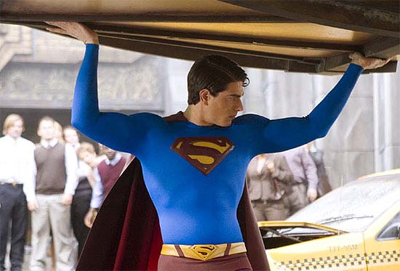
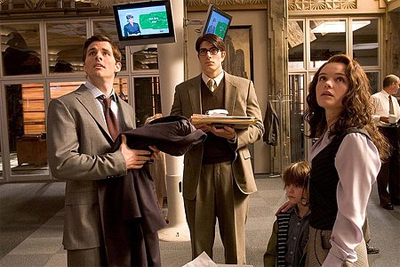
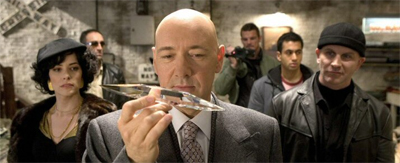
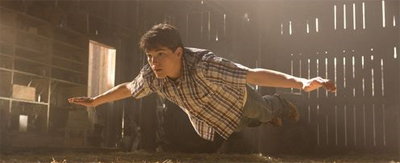
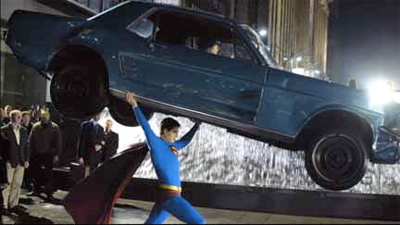
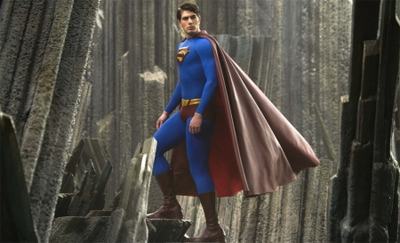
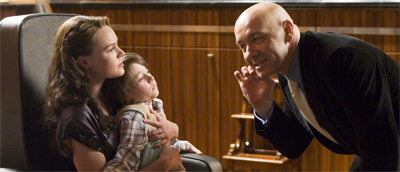
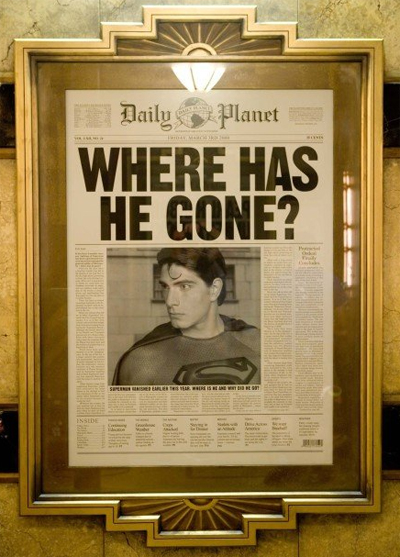

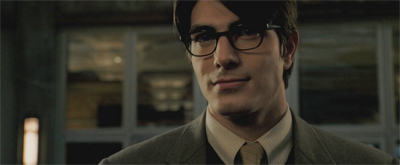
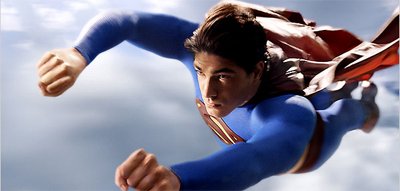
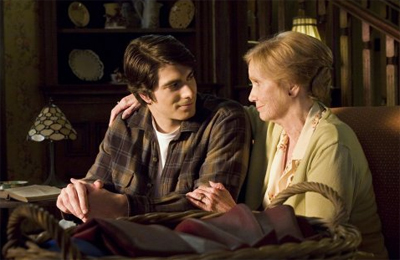
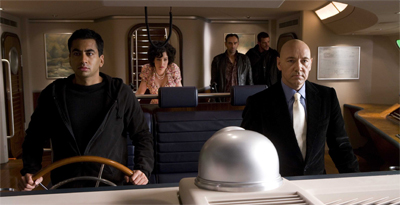
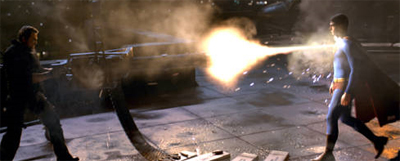
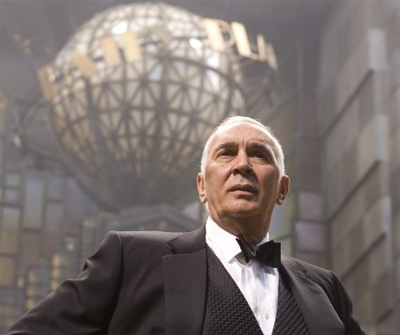
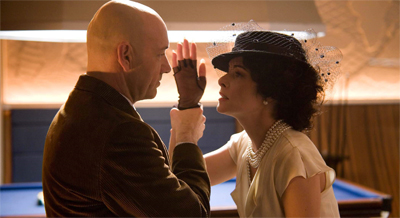
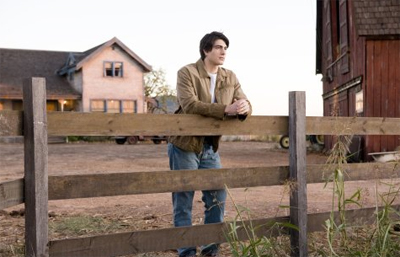
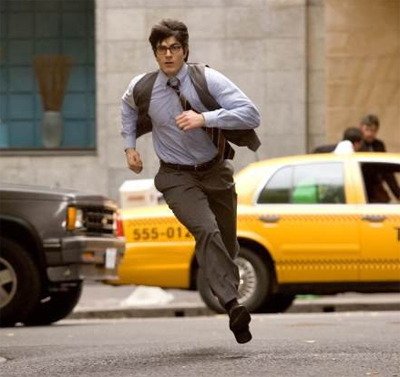
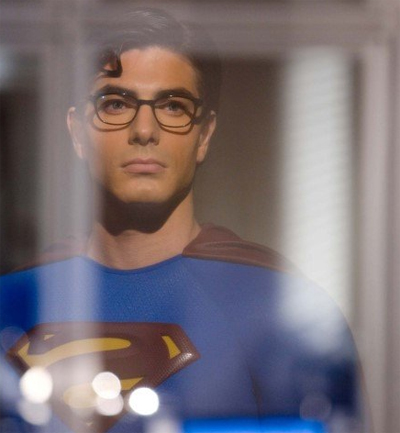





I’ve fallen asleep to this movie every time I’ve watched it, theatre included. It certainly isn’t poorly made (although to me the airplane rescue scene CGI looked poor back in 2006), but it’s painfully dull. But that was a great analysis.
Thanks Justin. Yep, it’s lavish and lovingly produced (I mean, look at the design of Metropolis), but there’s very little engagement there – ironically, by trying to make Superman relatable, the movie just pushes him further away from the audience.
I think this might be the longest review I’ve ever written.
Wow nice post!
I think it’s really difficult to create a Superman that the modern movie going audience will like… Superman is probably considered “outdated” or “lame” by most youngsters nowadays…
Also, I’m iffy on the whole Zack Snyder thing… it’s like Warner Bros don’t know what to do with the Superman franchise and just gives it to the most fanboy-ish director. Heh.
Thanks iPodman! Yep, I think Superman’s an inherently shallow character, and a lot of filmmakers are terrified of that facet of him. Unlike Batman, who can be developed through tragedy and pain, Superman is an ideal. He’s a cardboard cutout. That’s not a problem, it’s a fact – Donner was able to make two solid movies around that archetype by acknowledging that it’s a little corny and cheesy, but it’s pure spectacle.
For better or worse, I’m excited about Snyder’s adaptation. If only because Snyder does pure eye candy, which is what Superman needs.
I thought this movie was grossly overdramatized and severely lacking in action.
Yep. The problem isn’t even drama, though – it’s the forced melodrama. This iteration of Superman could teach the guys from Twilight a thing or two.
The problem, as you say so well, is that this isn’t Superman. Having him presented as a peeping Tom, let alone an utterly selfish son and lover , quite sinks the movie despite any other virtues it may have. Perhaps if the film had set out to openly and honestly portray Superman as a character who was deeply, deeply flawed, then the experience of watching it might have been to some degree interesting, although why anyone would want to blow a reboot of a franchise on such a business quite escapes me. But that this film constantly places Superman in the role of the heroic figure despite swiftly establishing his behaviour to be that of a fundamentally shallow, self-regarding and none-too bright child makes the watching of it a deeply uncomfortable experience for me. It seems to reflect a fundamental lack of understanding of the character on the part of the film-makers, and that can only reflect a worrying lack of moral common sense. How can they not have noticed what they were saying? It seems to me quite inexplicable that no-one noticed what they were doing, and what they ended up saying ….
I say this not in the spirit of fanboy outrage, but rather with a sense of disappointment that so little attention was paid to the script and its meaning.
Thanks for popping over Colin! Always a pleasure to have you. You’re right, for most of the movie Superman seems like he should be wearing eye-liner or auditioning to join the cast of Twilight.
We’re asked, in the spirit of the Donner movies, to accept Superman as a heroic and wholesome Christ, when he’s shown as something of a lusty insecure teenager. In fairness, even if Spacey wasn’t as charismatic as he is in the role, it’s hard to argue that Lex doesn’t have a point in his distrust and hatred of Superman.
The climax of The Dark Knight was built around Batman spying on 50 million people and the ethical dilemma that created (while trying to save lives). Here, our hero uses X-ray vision and super-hearing to stalk an ex-girlfriend.
“I could have done without her explaining, “you’ve shown me pleasures that I’ve never gotten.”
This a thousand times over. Man I remember how excited I was about Spacey’s casting. I thought we’d finally get Brian Azzerello’s Luthor. How foolish I was.
The film has it’s moments (The Shuttle Set Piece is still pretty awesome) but man Routh deserved a better film.
Yep, Spacey would have been great for that sort of Luthor. Unfortunately, he got stuck with conman Luthor. In fairness, the thing I’m most anxious about with Snyder’s Superman reboot is to see how they handle Luthor. Man, the character deserves better.
And now for the dissenting opinion: I’ll start off by saying I love this movie; it is by far my favorite of the five. I love it because it does what no other Superman movie has done before: focus on the characters, not the action. The movie develops Superman into a multi-dimensional character. In this movie, he is a hero, he is adored and perhaps even worshiped, yet not everything is perfect in the world of Superman: he doesn’t have a place to call home (and in this movie, he DOES want to find it), he can’t be with the woman he loves, and neither he nor Clark will ever “fit in.” He longs for all of these things, and it’s finally starting to weigh on him. He is alone in a world where “everybody is in love with Superman.” He is an alien, and he’s constantly reminded of it.
Moreover, we get the sense of the above mostly through body language and facial expressions, not through dialogue, a feat which I consider good acting. In fact, I would go so far as to say that both Routh and Bosworth exhibited SUPERB acting in this movie, pun intended.
If nothing else, I should thank you. I’ve read negative reviews of this movie, and my main thought was always, “I don’t get it.” While I’m not saying your review is negative (on the contrary, I thought you gave a well thought and justified review), I finally understand why some don’t like it: they wanted a great action movie, whereas this one is more of a drama with some action in it; but again, I think that is what separates this movie from the rest and makes it the best. There are three moments in this movie that get me choked up every time I watch it. I get emotionally attached to the characters, and that’s no small feat considering, probably like most guys, I feel no emotion whatsoever during most of my waking hours. Actually, I do feel mostly pain and discomfort whenever I watch Superman IV.
All that said, I do think you fall a bit towards the way of the hypocrite in this review when you say that one of this film’s flaws is that it mimics what has been done before a little too much, and yet you admit to wanting another Wham! Bang! action flick, only this time with Superman as the lead. Would a Michael Bay version of Superman be more to your liking, where Superman just went on a ‘roid rage for two hours, and every time he punched some dude, that dude exploded in a giant fireball? Also, you and others on this page blame this movie for portraying a less morally just Superman than that in the comics, but let us not forget that Singer intended this movie to be a Donner sequel/reboot, retelling some aspects while relying on the first two movies to fill in the blanks elsewhere, and it was the Donner/Reeve Superman in Superman II who slept with Lois and impregnated her (assuming this was the moment of conception), then kissed her (at the end of the movie) to erase her memory, leaving Lois without even a clue as to who the father may be. How’s that for morally unjust? Yes, this movie portrays Superman as somewhat flawed, but flawed characters make for more interesting characters.
Finally, although I too could have done without the “you’ve shown me pleasures …” line, it did go to show just how far Lex had sunk, and how far he was willing to go to fulfill his plan. It established character, and that’s why I love this movie.
I know its hard to write this without sounding homophobic; but I think the movie did not benefit from having Singer direct it; and that his inclinations do show through specially after repeated viewings.
This is not like when BAtman Forever came out and we knew fully well what kind of stuff to expect; and even then that movie is cheesy fun and has endured the test of time as it is still very watchable.
Not so with Superman Returns, wich gets more and more boring each passing year; a film that its director was seemingly more concerned with fitting a stylistic look than telling a story. It feels more like a pet project of updating Donner’s universe with new technology; and if Luthor is the best part of the movie it’s because Spacey was the o nly actual actor among the cast. I had always wondered why they couldn’t get Tom Welling to play the part instead of casting a new comer since at least Welling is familiar with the character.
Reeves was a damn good actor, Routh only kinda looks like Reeves, but doesn’t have the chops to do an impression, and lacks the skill to imprint the character with his interpretation (but I suspect Singer also requested only that much from him on top of that)
And regarding Supes Rrturns character derailment; Singer is obviously a Superman fan but not a comic book fan; more specifically, he’s a fan of Donner’s vision for the movie and willingly ignored the over 30 years of character evolution in the comics between the movie’s launch and today. It is telling that Singer is ok with an all surveilant demigod (wich is ok, cos Singer superman is a closet gay; and judging him would make you homophobic, thus Supes is beyond all good and evil; or at least that’s how I am reading the character in the movie nowadays) when not even evil Ultraman from an alternate dimension steps that low; and Communist Superman -a world wide dictator who imposes communism-socialism and kryptonian technology on the world- only does so to ensure mankind’s well being, and openly LAMENTS having to do it.
So maybe I am reading too much into Singer’s version sometimes, but that’s the impression I get from watching the movie. And retroactively, from the X-Men movies. I think Singer doesn’t really get comics and the characters, and even tough he is an skilled movie maker he doesn’t know how to divorce his opinions and beliefs from the material he handles (none of his movies feature characters created by him).
X-Men is more subdued perhaps because the characters themselves could be used as mouthpieces for the gay community (and have been used like that in the past; just as originally they represented the black community during the 60’s or the geek subculture during the 90’s) but Supes just like Captain America embody another thing entirely, and Singer couldn’t handle it properly.
I’m not sure how criticising Singer can be seen as homophobic, unless you’re criticising him because of his sexuality. I don’t think any of the problems witht he film (and there are many) have anything to do with his homosexuality.
Respectfully, I think it’s possible to divorce the camp of Batman Forever from Joel Schumacher’s personal life. I’d disagree with your accessment that it’s enjoyable, and I’d make the case it’s even worse than Batman & Robin, because it never descends to the level of being so bad it’s like a neon trainwreck, impossible to look away. Schumacher is a filmmaker who has produced countless impressive and respectable films without his sexuality influencing them – Phone Booth, Falling Down and countless others attesting to that. It is of course possible for a director’s personal life to drive their work (look at Woody Allen, acting out his own neurosis on the screen over and over again, eventually through avatars), but I don’t think Singer and Schumacher are those kind of directors, and – if they were – I don’t think their sexuality is an underlying connecting theme to their work. Not that there’s anything wrong with that – Batman Forever isn’t bad because it’s camp, it’s bad because it’s a poorly-thought-out and inconsistent mess. As for Singer, I’d make the case that Vaughn’s X-Men: First Class was far more camp than Singer’s two X-Men films ever were.
I don’t think Superman is gay – closeted or otherwise – and I don’t think the film makes the case that he is. It isn’t a metaphor for gay fathers or anything like that, because – if it is – it’s one of the worst constructed metaphors I have ever seen. Is the sense of isolation and alienation Superman feels something that many younger closeted homosexuals feel? Of course it is. But that feeling is not exclusive to that group – it’s an existential ennui that many people feel in the twenty-first century, whether gay or straight, married or single, black or white. It’s a spiritual listlessness, a sense that the world is a cold and empty place. Of course, Superman is the exact opposite of that – and stern rebuttle to that philosophy, a symbol of mankind’s potential – so the metaphor falls flat.
It’s a very different feeling than Singer’s X-Men, with the only connecting thread being that the leads are outsiders. Indeed, Singer’s two X-Men films are actually far more optimistic in outlook, because they suggest the heroes can and should engage in activism. As you ntoe, it’s a potent metaphor for gay rights (just as it was for civil rights). Superman Returns doesn’t do that, because it’s not a metaphor for the type of exclusion that can be solved by activism or engagement, if that makes sense.
In a way, as I remarked in the review, it feels like Singer deconstructed Superman, and there’s a time and a place for that. However, that place is not within a giant homage to Donner and Reeve, and in a massive tentpole that is similtaneously trying to make the hero relevant. Nolan deconstructed Batman, but he put him back together as well. Singer does such a number on Superman that he can’t put all the pieces together again.